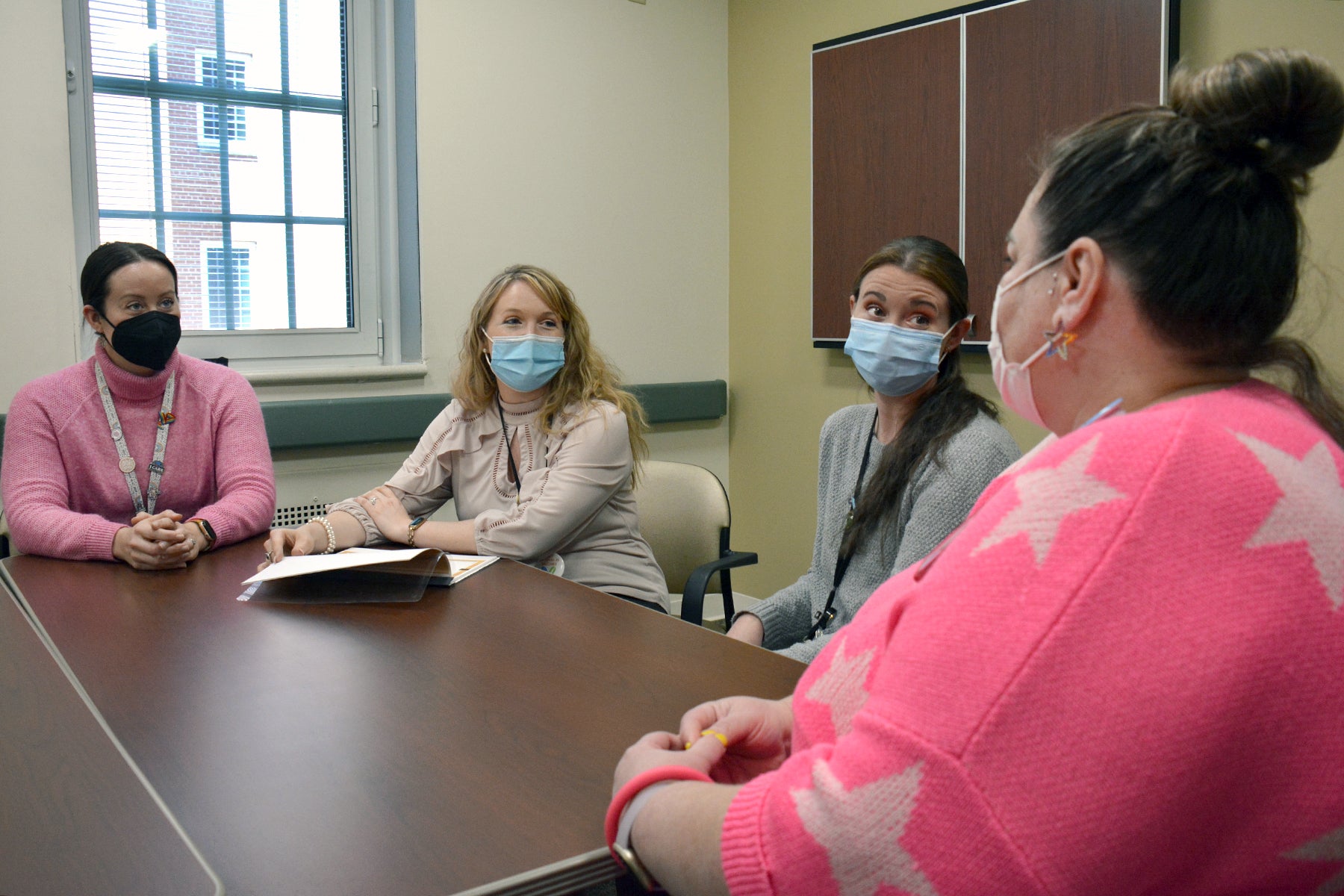Salisbury VA mental health team works to ease burden on veterans, families suffering with dementia
Published 12:01 am Friday, April 22, 2022

- Submitted — Mental health nurse Rita Underwood (right), inpatient psychologist Kathryn Johansson, Behavioral Recovery outreach coordinator Autumn Edmiston and Community Living Center psychologist Emelie McFarland (left) review new BRO team referrals and discuss behavioral challenges that could arise.
By Staff Report
SALISBURY — Looking after a loved one with dementia and finding long-term care options can be overwhelming to family members. That’s where the Behavioral Recovery Outreach team at Salisbury VA Health Care System can lend a hand.
Licensed clinical social worker and BRO Team Coordinator Autumn Edmiston is part of an interdisciplinary team comprising two psychologists, two nurse managers, a behavioral neurologist, a recreation therapist, a social worker and a pharmacist. The group meets weekly to discuss care options for the most vulnerable veteran population.
“Our goal is to work with veterans who have behavioral issues either from a mental health diagnosis or from cognitive impairment such as dementia,” said Edmiston.
BRO works with inpatient teams to take non-pharmacological approaches to stabilize behavioral issues such as aggression or verbal outbursts. Team members work to manage those behaviors and follow veterans for at least six months after they leave the VA. In order to be eligible, veterans must need a caregiver, whether that is at home, skilled nursing or an assisted living facility.
For Veronica Lilly, whose husband, a Navy veteran, suffers from dementia, the disease’s progression was especially rough.
“I am a retired teacher of special needs children and that made it very difficult for me to see my husband deteriorate the way he did,” said Lilly. “I was in denial. I’d go to work every day for 9 hours with special needs kids and I’d come home to a husband I was starting to not really recognize.”
For Lilly, the BRO team has been invaluable.
“This program really helped my husband and me,” she said. “It brought a level of simplicity to the situation we were going through. They explained all the specifics of the disease and how to address certain situations that may arise when interacting with my husband.”
While her husband was an inpatient at Salisbury VA, the team gave Lilly in-depth medical notes. These helped her understand how he interacts with medical staff. Her husband was leery of people he didn’t know and relied on Edmiston to help him.
“Thank God for her because she was at many of his doctor appointments and that gave him a sense of calm,” said Lilly. “BRO team has been phenomenal. Autumn calls regularly to make sure I’m doing OK. In fact, the team did extensive research to find an appropriate long-term facility for my husband that we feel safe about.”
A dementia patient’s mental health can change when they leave the hospital. An inpatient mental health unit is the highest level of care there is, so when they transition to a lower level, environmental changes really can affect them. It’s BRO team’s goal to make that switch as seamless as possible for the new caregivers. One way they do this is by developing a behavior plan.
“We brainstorm interventions with the new care team,” said Edmiston. “For example, does the veteran always refuse to brush his teeth? Well, there are things that can be done to improve this behavior. Do we have the toothbrush and toothpaste he likes? How are staff approaching him? Are we circling back later in the day and possibly pairing it with music he likes? What can we do to make it a more enjoyable experience?”
Edmiston measures success in several ways. First, the team has consistently demonstrated a decrease in hospitalizations because they know what has been tried and where to go next. They also have found that compared to community hospitalizations, a veteran’s VA stay with BRO involved is much shorter. The team’s goal is to extend time between hospitalizations.
“I love when inpatient teams tell us we’re helpful,” said Edmiston. “We get lots of positive family feedback. We have seen veterans go from irritable, anxious and restless to happy, content and at the appropriate level of care. I see BRO’s role as reducing stress for everyone involved. And I see my personal calling as finding a way to reduce suffering in the world. BRO has a unique way of doing that at a systemic level.”
For more information on the BRO team and how it can assist a loved one suffering with dementia, contact Autumn Edmiston at 704-638-9000, ext. 14683.

